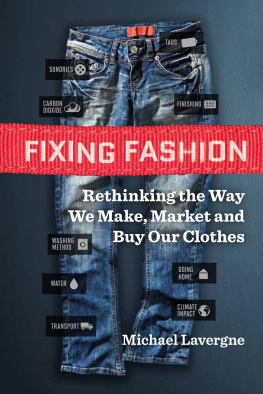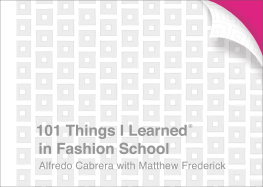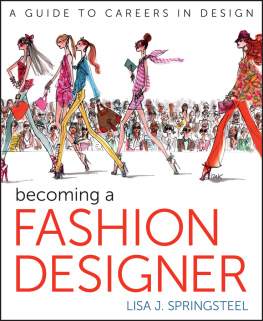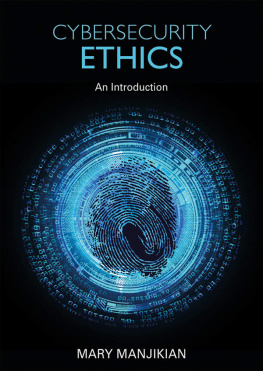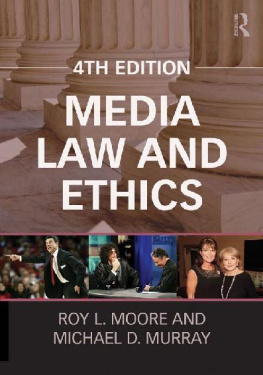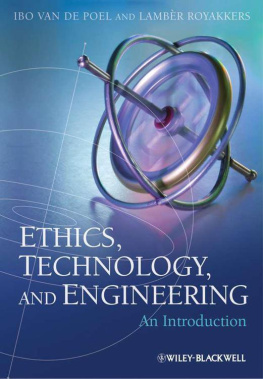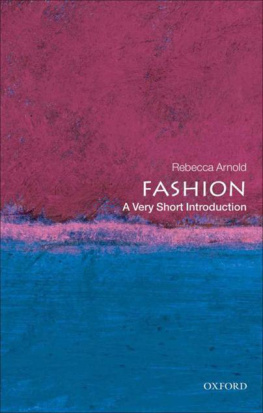
FASHION ETHICS
Fashion Ethics provides a comprehensive overview of the ethical issues in the fashion industry, from collection design concept to upcycling and closed loop production. This book answers an urgent need for a comprehensive understanding of the fundamental ethics of the fashion industry.
Sue Thomas goes beyond the usual contentious issues of environmental impact and human rights, taking the reader deeper into the endemic issues including sizeism, ageism, animal rights, and the lack of diversity in models and in the media. The book lays out the significant ethical issues within the fashion supply chain by mapping the lifecycle of a garment and exploring key topics such as deep ecology, cultural copyright speciesism, the role of the customer, and technology in future ethics. It also features current international industry information and industry-relevant case studies from brands, media and mobile technology, and NGOs including Oxfam (UK), Redress (Hong Kong), Nimany (US), Labor Link (US), People Tree (UK), and Peppermint (Australia).
Fashion Ethics provides much-needed information for fashion students, industry professionals, and customers.
Sue Thomas is Assistant Professor of Fashion at Heriot-Watt University, UK. Having taught in the UK and Aotearoa, New Zealand, it was in Australia that she began teaching fashion design for sustainability. A public speaker and broadcaster, she champions ethics and sustainability. She contributed a chapter on faith in design in The Routledge Handbook of Sustainability and Fashion (2014).
In Fashion Ethics, Sue Thomas uses her commanding knowledge of the fashion industry and engaging writing style to guide readers through a breadth of uncomfortable ethical issues that demand reflection and consideration. Thomas advocates for shared responsibility and collaboration to dream big about how to integrate compassion for all stakeholders into the industry and then for making the choices necessary to secure the future of the fashion industry and the planet. A must-read for every first year fashion student and for any industry professional whose work intersects with the design, production, marketing, wear, or disposal and reincarnation stages of the product lifecycle.
Marsha Dickson, Department of Fashion and Apparel Studies, University of Delaware, USA
In this informative and topical text, Thomas introduces the reader to a wide range of subjects and debates concerned with ethics, and the production and consumption of fashion products. In the chapters we explore themes that have been (and perhaps still remain) largely invisible to the fashion system from ageism, sizeism, and racism, to concerns for environmental impacts and intellectual copyright. Throughout the text Thomas challenges designers, retailers and consumers to consider what it is to be ethical, and how this should/could be demonstrated in the way that we make, sell and use clothes. Fashion Ethics has to be a must-read for all burgeoning fashion students and consumers.
Alison Gwilt, Reader in Fashion Design and Sustainability, Sheffield Hallam University, UK
Thomas breaks new ground by examining the fashion value chain through a lens of ethics. Fashion Ethics provides a comprehensive view of the fashion landscape, from industry stakeholders to the end user, and points to both a radically altered global fashion system and new research areas for fashion studies for years to come.
Timo Rissanen, Assistant Professor of Fashion Design and Sustainability, Parsons School of Design, New York
First published 2018
by Routledge
2 Park Square, Milton Park, Abingdon, Oxon OX14 4RN
and by Routledge
711 Third Avenue, New York, NY 10017
Routledge is an imprint of the Taylor & Francis Group, an informa business
2018 Sue Thomas
The right of Sue Thomas to be identified as author of this work has been asserted by her in accordance with sections 77 and 78 of the Copyright, Designs and Patents Act 1988.
All rights reserved. No part of this book may be reprinted or reproduced or utilised in any form or by any electronic, mechanical, or other means, now known or hereafter invented, including photocopying and recording, or in any information storage or retrieval system, without permission in writing from the publishers.
Trademark notice: Product or corporate names may be trademarks or registered trademarks, and are used only for identification and explanation without intent to infringe.
British Library Cataloguing-in-Publication Data
A catalogue record for this book is available from the British Library
Library of Congress Cataloging-in-Publication Data
Names: Thomas, Sue (Fashion authority)
Title: Fashion ethics / Sue Thomas.
Description: London ; New York : Routledge, 2018. | Includes bibliographical references and index.
Identifiers: LCCN 2017010651 | ISBN 9780415531047 (hbk) | ISBN 9780415531054 (pbk) | ISBN 9781315109367 (ebk)
Subjects: LCSH: Fashion design--Moral and ethical aspects. | Fashion merchandising--Moral and ethical aspects.
Classification: LCC TT497 .T455 2018 | DDC 746.9/2--dc23
LC record available at https://lccn.loc.gov/2017010651
ISBN: 978-0-415-53104-7 (hbk)
ISBN: 978-0-415-53105-4 (pbk)
ISBN: 978-1-315-10936-7 (ebk)
I would like to thank Sheni Kruger, Natalie Foster, Fiona Hudson, Jaya Dalal and all the other folks at Routledge, Elana Steinberg my editor for adroit editing (skilled in writing triage) and wry sense of humour, Lorna Hendry for the speedy diagrams, and Paul (Sherlock) Brotherston for tracking down the images.
For all the industry professionals, and non-government organisations who (on trust) generously gave time to share their practice to contribute a case study I am in awe and very grateful.
After all this time researching and writing I would like to acknowledge dear friends Jan McIllree and Shazia Bano, Liliana Pomazan and Brian De Silva for friendship, encouragement, patience, sanity and laughter, and Earl Grey tea when needed. In addition I would like to extend love and thanks to my Aussie cousins Sue, Curtis and Lisa in Melbourne.
To lovely friends near and far; scattered over England, Aotearoa New Zealand and Australia, thank you for your tolerance, patience and love. I might visit you now!
I would like to acknowledge my colleagues and students at Heriot-Watt University, Galashiels for their patience as I worked to finish the book.
In addition, I would like to thank fashion students (far, near, past and present) for asking tricky questions; dont stop!
To my superb family, my sisters Sal (Sarah), Jules (Julia), my brother Guy, and my late parents Elvyn and Douglas Thomas, I would like to thank them for their love, support, trust and extreme patience.
Introduction
In November of 2014, Kyla Bills, a student at NYU wrote in a New York University Local blog:
Its easy to buy a $2 shirt from Forever 21, but when you think about the chain that takes place to create this $2 shirt it becomes a lot harder to rationalize your purchase. Of course, were broke college students and buying clothes is expensive buying ethically is often even more expensive. There is a certain amount of privilege needed to be able to think about the ethics of what were buying and not just the cost, its a privilege that not everyone has.



